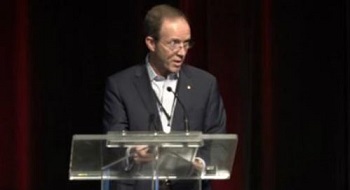While most DC plan sponsors view retirement as the end of their relationship with their employees, some plan sponsors are taking an alternate approach by extending their DC retirement program to include a decumulation option.


There are two impediments to moving forward with decumulation. One is structural: plan sponsors are reluctant to take on additional fiduciary responsibility. In 2014, the U.S. allowed annuities as a qualified default investment alternative: when sponsors offer deferred annuities as a default investment option, they have safe harbour protection and can’t be sued. However, Canada doesn’t offer sponsors similar protection. We need to address sponsors’ concerns here. The second is behavioural: in DC, less than 5% of plan members annuitize their savings, in part or in whole.


A global multi-sector fixed income strategy can offer a wide range of opportunities beyond the domestic market, said Terry Moore, portfolio specialist, global multi-sector and fixed income solutions strategies, with T. Rowe Price, so it’s something more DC investors need to be aware of.


Canada has the fourth largest equity market in the world but accounts for just 4% of world equity markets, as measured by market capitalization within the MSCI World Index. So for Canadian investors, it makes sense to look abroad, said Catherine Jackman, vice-president with Phillips, Hager & North Investment Management. Yet investors typically allocate more to their home country equities than to their country’s share of the world equity market.
The 2015 DC Plan Summit provided a dynamic forum for senior DC decision-makers to prepare for the next phase of DC plan evolution: decumulation. These videos highlight what was discussed at this year's summit.


Investing in stocks has historically provided the potential growth investors need when accumulating assets as they prepare for retirement. In times of market volatility, however, an account’s drop in value can result in investors selling stocks at near-low levels and then buying them back at higher ones when markets recover.
Canadian plan sponsors aren’t yet ready to offer financial wellness programs and don’t believe there’s a need for them. They also don’t want to be responsible for giving debt management and financial advice to their employees.


Most plan sponsors agree on the importance of providing some form of qualified advice to plan members, which reflects a shift in risk appetite. Sponsors are realizing not providing any options for members to obtain qualified advice might actually be a bigger risk.


When DC plan sponsors use behavioural economics, it can create better outcomes for DC plan members.


How to handle the payout phase is one of the most important issues facing DC plan sponsors today. Benefits Canada’s 2015 DC Plan Summit delved into the decumulation dilemma.